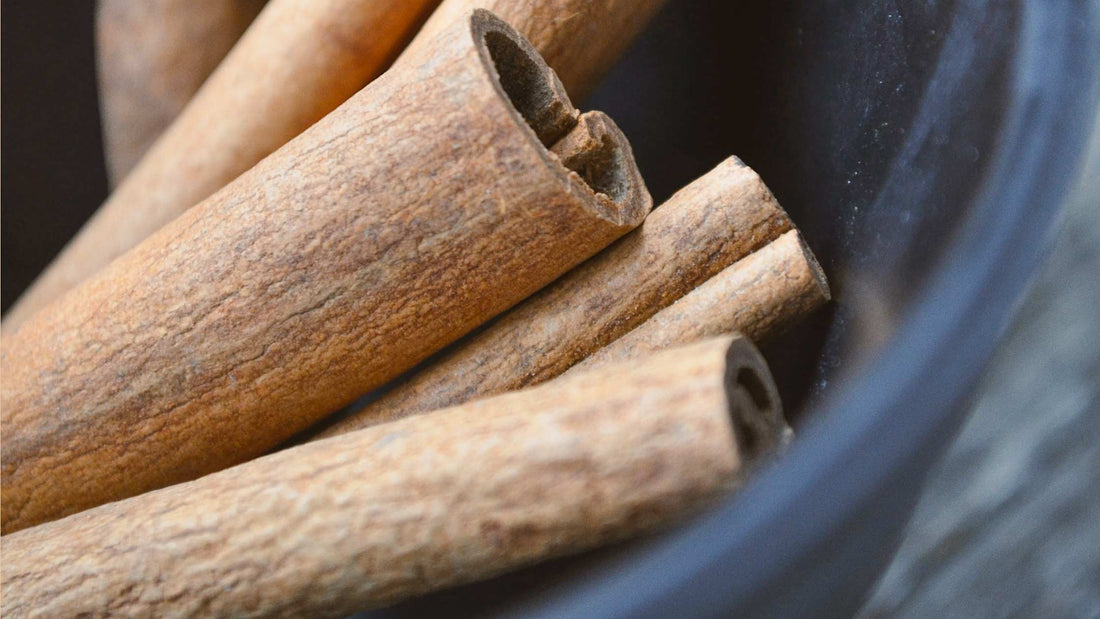Article summary: Research indicates that cinnamon may lower LDL cholesterol, although conclusive evidence is lacking. Nonetheless, cinnamon offers a myriad of health advantages that may indirectly contribute to combating high cholesterol. Cinnamon may further assist with weight reduction, making it a good choice for a cholesterol-friendly diet.
Before consuming large amounts of cinnamon, it's vital to understand which varieties are safe to use and what the daily recommendations are.
Cholesterol
Cholesterol is a crucial substance that the body uses to build cells, as well as produce hormones and vitamins. Cholesterol becomes problematic primarily due to Western diets that provide excessive amounts of cholesterol.
Cholesterol explained in detail.
Cinnamon and cholesterol
Cinnamon is an healthy spice but not all cinnamon is created equal. There are many different varieties of cinnamon, each with its own set of differences. The flavor of cinnamon comes from its oil and principal component, cinnamaldehyde.
Coumarin in Cinnamon
Cinnamon contains a substance called coumarin, which is considered liver-toxic.
It's recommended that daily coumarin intake not exceed 1 milligram per 10 kilograms of body weight. For instance, if you weight 80 kilograms, your daily coumarin recommendation is 8 milligrams.
A coumarin recommendation does not equate to a maximum amount of cinnamon use, as not all cinnamon varieties contain the same levels of coumarin.
Different Varieties
If you're using the typical cinnamon found in grocery stores, you're most likely using Cassia cinnamon. It's less expensive and provides the flavor most people prefer.
If you're using Cassia cinnamon, adhere to the daily recommendation of one teaspoon, as it contains high levels of coumarin.
Bear in mind that although coumarin is toxic, it must be consumed in large quantities to have negative effects. Therefore, for baking, for example, you are completely safe.
Ceylon cinnamon is a variety softer in texture, and its flavor is lighter, mildly aromatic, sweet, and sophisticated.
Ceylon cinnamon is pricier than Cassia, but it contains about 65 times less coumarin, making it a safer option.
You don't need to worry about coumarin intake if you opt for Ceylon cinnamon.
Bottom Line
For daily consumption, opt for Ceylon cinnamon to avoid excessive coumarin intake. For baked treats, Cassia cinnamon is more than suitable.
Does Cinnamon Lower or Rise Your Cholesterol?
A research review found several studies concluding that cinnamon helps reduce LDL cholesterol. However, it's vital to note that there are also studies with opposite results, suggesting that cinnamon is unlikely to directly affect cholesterol levels.
Our Take on Research
There are studies that show cinnamon is effective in combating high cholesterol, especially in lowering bad LDL cholesterol. However, cinnamon is not a magic spice. Its benefits arise from a wide range of health advantages that also indirectly affect cholesterol levels. Cinnamon may aid in weight reduction as it impacts blood sugar levels and boosts metabolism; it also has powerful anti-inflammatory properties.
Research:
- https://lipidworld.biomedcentral.com/articles/10.1186/s12944-017-0504-8
- https://www.sciencedirect.com/science/article/abs/pii/S1744388122000937
- https://pubs.rsc.org/en/content/articlehtml/2021/fo/d1fo01935j
- https://newsroom.heart.org/news/6-common-heart-health-supplements-ineffective-at-lowering-cholesterol-compared-to-statins
Bottom Line
We recommend using Ceylon cinnamon so that you don't have to worry about excessive coumarin intake.
Although cinnamon may not directly reduce high cholesterol, many studies show decreased cholesterol after taking cinnamon daily for extended (two to three months) periods.
Cinnamon is not a universal solution to high cholesterol. Balancing your cholesterol levels naturally requires a holistic approach, although cinnamon is a beneficial ingredient and add-on to healthy diet.

Medical Caution: Never use cinnamon or other supplements as a replacement for prescribed medication. Always consult your doctor about alternative treatments before discontinuing prescribed medication.

